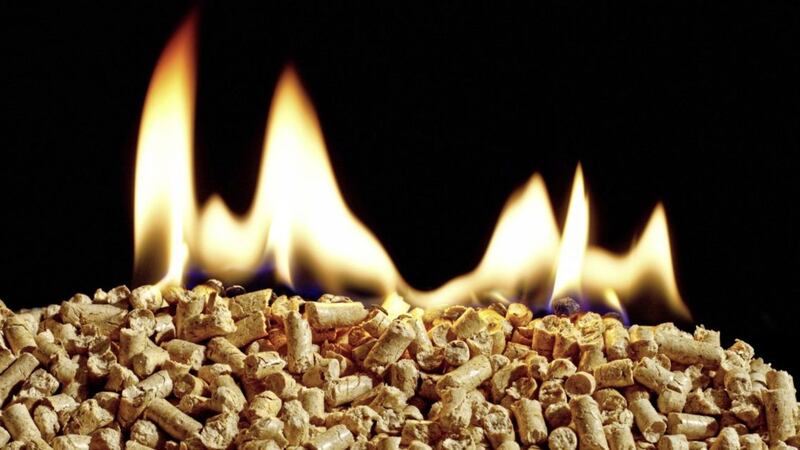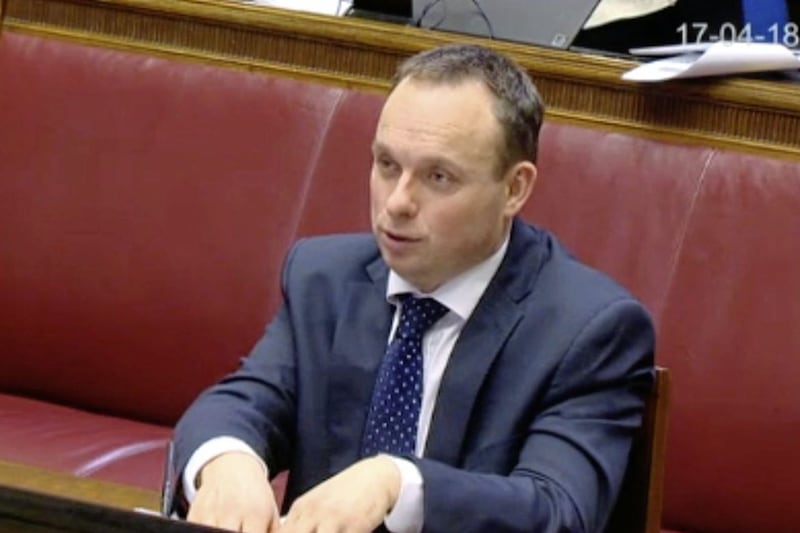The former chief executive of the Tourist Board has claimed that former DUP adviser Andrew Crawford seemed to have “created a culture of fear” in Arlene Foster’s former Stormont department.
Details are revealed in a new book about the botched RHI (Renewable Heat Incentive) scheme.
‘Burned: The Inside Story of the Cash for Ash Scandal and Northern Ireland’s Secretive New Elite’ has been written by Sam McBride, political editor at the News Letter.
In the book Mr McBride tells how former tourism chief Alan Clarke kept notes of meetings with Mr Crawford and his then boss Arlene Foster, who at the time as the minister in charge of the Department of Enterprise Trade and Investment.
The author reveals that Mr Clarke claimed “that the spad ‘would threaten you’ and although he could not do much to Clarke personally, he could make things very difficult for the tourist board.
“So what he threatened us with was ‘if you step out of line, I’ll do an inquiry on you’, which he eventually did just before I left.’
Read More: Family of former DUP special adviser stood to earn £6m from RHI, book claims
“He said that Crawford seemed to have created ‘a culture of fear’ within DETI.”
Mr Clarke, who now lives in Scotland, reveals how Mr Crawford accused him of being an SDLP sympathiser and how both DUP officials questioned the Museum of Free Derry, the main signature project of the Bloody Sunday Trust.
Mr Clarke said that in a ‘confidential file note’ made of a meeting with Mrs Foster in July 2013 she asked several officials, including a private secretary whose role it is to record a minute of meetings involving the minister, to leave the room.
Those who remained in the room included Mr Crawford, Mrs Foster, civil servants David Sterling and David Thomson and Mr Clarke
The minister raised the “Museum of Free Derry project”, which opened in 2007 and examines the history of Derry between 1968 and 1972.
“Both the Spad and she [Foster] described it as a Sinn Féin project, that it had little or no tourism benefits,” Mr McBride writes.
“I (Clarke) explained the background to the project, in terms of the Western Perspective, the combination of the Apprentice Boys and the Museum of Free Derry and public realm space between.
“It was explained that the Museum of Free Derry had gone through all requisite board approval … again the minister and the Spad described this as a Sinn Féin project and considered that, while the Apprentice Boys had ‘history’, the Museum of Free Derry had not.”
On another occasion it is recounted how Mr Clarke was contacted by Mr Crawford in relation to a media story involving his minister and was accused of being a nationalist.
Mr McBride writes: “Crawford, the note said, had gone on to demand that Clarke contact him as ‘a matter of urgency’ because the minister may give an interview in which ‘I suspect she will not be very complimentary about the NITB’, adding: ‘I expect a response back very quickly.’ Clarke said that he was ‘not remotely nationalist’ – and had striven to be politically neutral in his role – but had been accused by Crawford of being ‘SDLP, nationalist, whatever else’ because some of what the NITB was doing did not meet with his approval.”
The book suggests Mr Crawford played a particular role on behalf of Mrs Foster.
“While Foster kept her hands clean and did not act inappropriately towards him, Clarke said that ‘Andrew was her shark; she was personable and all the rest of it but Andrew was the one who kicked people and he used her power, if you like, to have his power,” Mr McBride writes.
Video: Who are the five DUP special advisers at the centre of the RHI storm?








